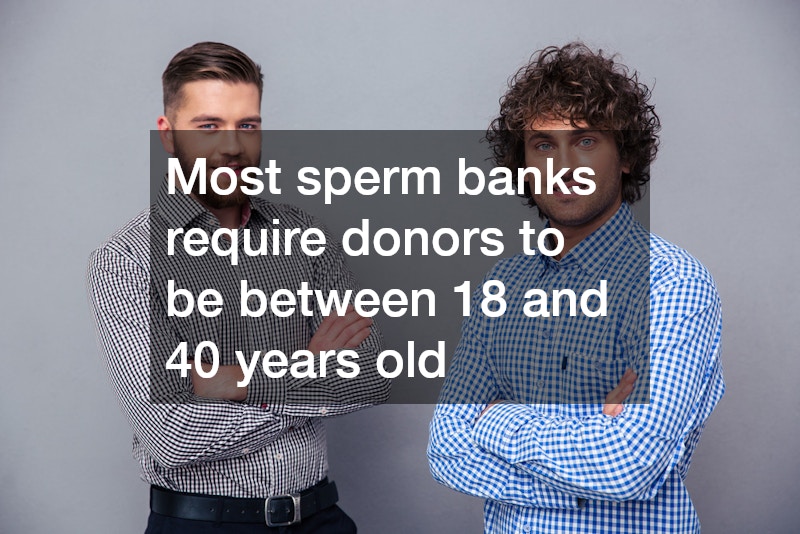
The semen donor process is a crucial element of assisted reproduction, allowing individuals or couples who are unable to conceive naturally to have a child. Whether due to infertility, same-sex relationships, or single women wishing to have children, sperm donation is an important option. It allows for a way to create families when traditional conception is not possible. However, before becoming a donor or using a donor’s sperm, it is essential to understand the entire process, from selection and screening to legal considerations.
In this article, we will discuss the semen donation process, the requirements to become a donor, the screening procedures, and the legal and ethical considerations involved for both donors and recipients.
What is Sperm Donation?
Sperm donation involves a man donating sperm for use in artificial insemination or in vitro fertilization (IVF) to help others conceive. Sperm can be donated anonymously or known to the recipient, depending on the arrangement and legal conditions. In most cases, sperm is stored in a sperm bank, where it is processed, frozen, and cataloged for later use by fertility clinics or individual clients. Sperm banks typically have a detailed screening process to ensure that only healthy sperm is made available to potential parents.
There are two main types of sperm donation:
Anonymous donation: The donor’s identity is kept confidential, and neither the donor nor the recipient has access to personal information about the other. The child born from the sperm donation typically has no legal claim to the donor’s identity.
Known donation: In this case, the donor agrees to be known to the recipient. This arrangement may involve an open relationship, where both parties can communicate or have access to identifying information.
The Semen Donor Selection Process
The first step in becoming a sperm donor is meeting the eligibility criteria. Clinics and sperm banks usually have strict selection guidelines to ensure that only the most suitable candidates are chosen. The following factors are considered when selecting sperm donors:
Age: Most sperm banks require donors to be between 18 and 40 years old. Donors in this age group typically have healthier sperm and a lower risk of genetic conditions.
Health history: Donors must be in excellent physical health and free from chronic illnesses such as diabetes, heart disease, or any infectious conditions that could affect the health of the recipient or child.
Family medical history: Donors undergo a thorough review of their family medical history to rule out hereditary conditions, such as genetic disorders or chronic illnesses that could be passed on to the child.
Screening for infectious diseases: Donors are screened for a range of sexually transmitted infections (STIs), including HIV, hepatitis, and syphilis. This screening is necessary to ensure that the sperm is safe for insemination.
Genetic screening: To ensure that the donor does not carry genetic conditions that could be passed on to the child, sperm donors undergo genetic screening. This typically involves testing for common conditions such as cystic fibrosis, sickle cell anemia, and Tay-Sachs disease.
Psychological evaluation: A psychological evaluation is conducted to ensure that the donor is mentally and emotionally prepared for the process. This evaluation may involve assessing the donor’s motivation for donating sperm and ensuring that he is aware of the legal and ethical responsibilities associated with the process.
The Sperm Donation Process
Once a sperm donor has been selected and passes all the necessary screening, the donation process itself can begin. Donors are typically asked to provide a sperm sample, which is collected in a sterile container and then tested. This sample is analyzed to determine its quality and viability. If the sperm is healthy, it is frozen and stored for later use.
During the donation process, donors are also required to sign legal agreements that specify that they will not have any parental rights or obligations regarding any children born from their donated sperm. The legal framework is designed to ensure that the donor has no legal claim to the child and that the intended parents have full rights and responsibilities.
How Is Donated Sperm Used?
Sperm donations are used in various reproductive procedures, including:
Artificial insemination (AI): In this method, sperm is directly inserted into the woman’s cervix or uterus using a catheter. This process can be done at home using an at-home insemination kit, but most often, it is done under the supervision of a fertility specialist in a clinic.
In vitro fertilization (IVF): In IVF, the sperm is combined with the egg outside of the woman’s body in a laboratory. If fertilization occurs, the resulting embryo is implanted in the woman’s uterus. IVF is often used when there are fertility issues or when artificial insemination has not been successful.
Intrauterine insemination (IUI): In IUI, sperm is placed directly in the uterus using a catheter, increasing the chances of fertilization by bringing the sperm closer to the egg. This method is commonly used when the woman has unexplained infertility or when there is male factor infertility.
Legal and Ethical Considerations
One of the most critical aspects of sperm donation is the legal implications. Both the donor and the recipient must clearly understand their rights and responsibilities, and many sperm banks require legal contracts to ensure clarity and avoid misunderstandings.
Parental rights: In the case of anonymous donation, the sperm donor relinquishes all parental rights and obligations. This ensures that the recipient parents have full legal control over the child. In some cases, a known donor may have the potential for a relationship with the child, but this must be clearly outlined in the contract.
Compensation: Sperm donors are usually compensated for their time, effort, and the inconvenience of the donation process. The amount of compensation varies but generally ranges from $50 to $150 per donation. However, donors are not paid for the sperm itself, and compensation is considered a reimbursement for the time and effort involved.
Confidentiality and anonymity: Many sperm banks offer anonymous donation, meaning the donor’s identity will not be shared with the recipients or children born from the donation. However, some recipients may opt for a known donor, where the donor’s identity is available to the parents and, in some cases, the child when they reach adulthood.
Ethical Concerns in Sperm Donation
There are several ethical considerations regarding sperm donation. One of the primary concerns is the potential for donor offspring to want to seek out their biological father. While anonymous donation is often the norm, some sperm banks are now allowing for offspring to access information about their biological parents once they reach a certain age. This raises concerns about donor anonymity, privacy, and the potential emotional consequences for both the donor and the child.
Another ethical issue concerns the possibility of a single donor fathering multiple children. Some sperm banks limit the number of offspring a single donor can have to avoid complications like sibling relationships and genetic diversity issues.
Sperm donation is a powerful tool in assisted reproduction, allowing individuals and couples who cannot conceive naturally to achieve their dreams of parenthood. Whether you are considering donating sperm or using a sperm donor, understanding the process is crucial. From medical screening and legal agreements to the actual donation process, there are many steps involved to ensure a successful and ethical experience. If you are considering becoming a sperm donor or seeking a sperm donor, it is essential to consult with a reputable fertility clinic or sperm bank that can guide you through the process, address your concerns, and ensure all legal and ethical standards are met.




